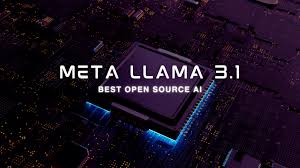In a report released on Tuesday, the White House voiced support for “open-source” AI technology, stating that there is no need for regulations preventing businesses from making essential parts of their potent AI systems publicly accessible.
Assistant Secretary Alan Davidson of the U.S. Commerce Department said, “We recognize the importance of open systems.”
President Joe Biden ordered the U.S. Commerce Department until July to consult with experts and provide advice on managing the potential advantages and risks of so-called open models as part of a comprehensive executive order on AI last year.
The phrase “open source” refers to a long-standing technique in software development where the source code is freely or publicly available for anyone to review, alter, and expand upon.
However, depending on whether parts of the technology are made publicly available and whether there are uses restrictions, computer scientists disagree on how to define open-source AI development, which entails more than just writing code.
This report represents the first attempt by the US government to examine a dispute in the tech sector between developers—like OpenAI, the company that created ChatGPT—who support shielding their models’ internal workings from abuse, and others—like Mark Zuckerberg, the CEO of Meta Platforms—who advocate for a more open approach that they claim encourages innovation.
According to Davidson, administrator of the National Telecommunications and Information Administration, “A year ago, there was a strong narrative about risk and long-term concerns about AI systems being too powerful.”
Laptops 1000“While there are still worries about AI safety, this report presents a more nuanced picture and demonstrates that there are actual advantages to these technologies being open source.”
“Current evidence is not sufficient,” according to the NTIA analysis, to support banning AI models with “widely available weights.”
Numerical quantities called weights have an impact on an AI model’s performance.
However, it further mandates that American authorities keep an eye out for possible threats and “take steps to ensure that the government is prepared to act if heightened risks emerge.”
Despite being initiated last autumn, Tuesday’s research coincides with the topic of AI policies becoming a political issue in the United States during the vice presidential contest between former President Donald Trump and Vice President Kamala Harris.
Sen. JD Vance, Trump’s running mate, has already expressed strong support for open-source AI and cautioned against the rules that large tech CEO attempt to impose on their positions.

















